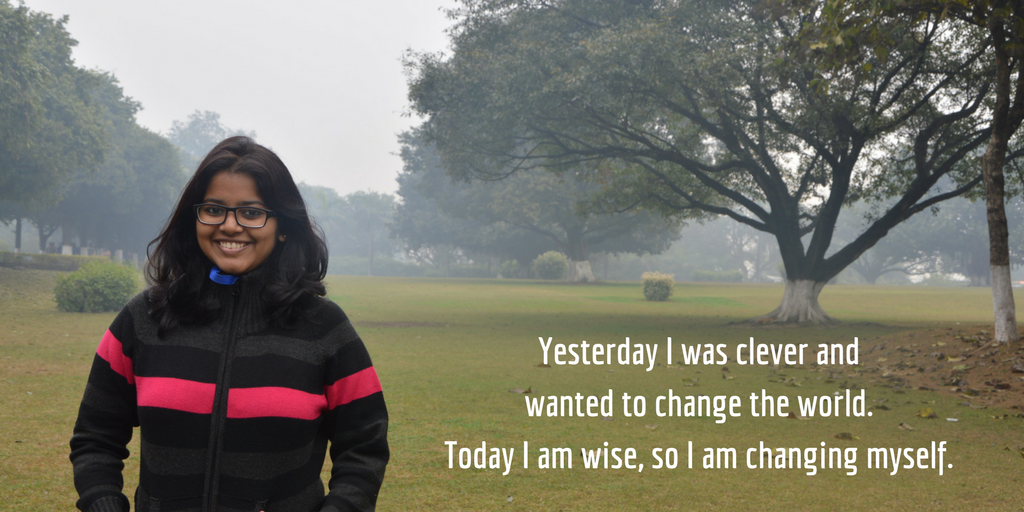4 years back I discovered Jagriti Yatra during a lazy evening Facebook browsing. That very moment, I knew that I had to go on the Yatra.
Jagriti Yatra is an exciting train journey taking 450 bright youngsters to 12 locations across India over 15 days to learn from the perspectives and ideas of today’s change-makers and be one tomorrow. The Yatris meet and interact with role-models such as Aravind Eye Care (Madurai), Anshu Gupta (Goonj, Delhi), Narayan Murthy (Infosys, Bangalore). Yatris also work in groups to identify socio-economic problems and work out a solution for the same.
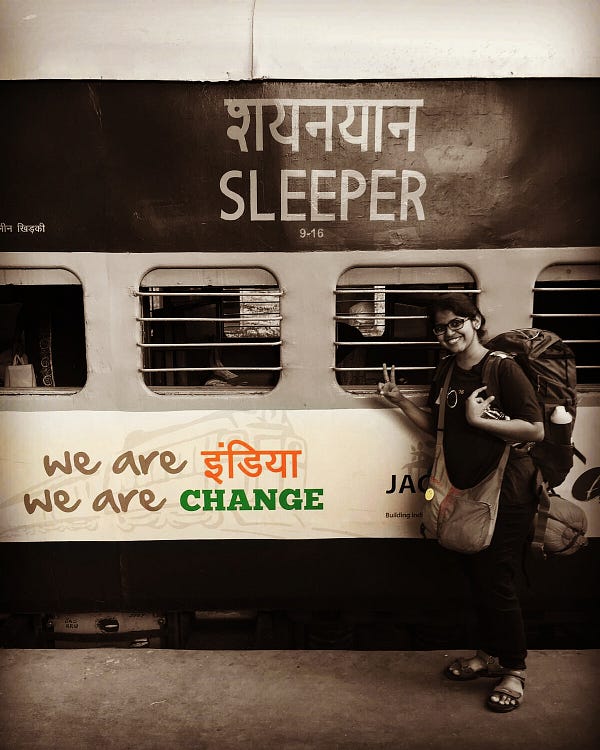
Every year I waited to be eligible for the Yatra and finally, this year I applied. I got selected! 🙂 I recently ran a crowd funding campaign #AruforJY to support my Yatra ( http://ket.to/aruforjy ). The campaign was a resounding success — I raised INR 68,650 in 5 days with support from 52 backers!
Thanks to them, I travelled the length and breadth of this gem of a country, crossing paths with 450 other bright minds, exchanging stories and learning new things every day.
The Yatra started from Mumbai on December 24th and covered 8000 miles before returning on January 8th. On the way, I got the opportunity to meet and interact with people who inspire by their actions. Role models who have been the change we wish to see in this world. They were not seen as heroes. We critically analysed their ventures and took valuable lessons.
Along the way, I met few people and heard few stories that left a lasting impression on me.
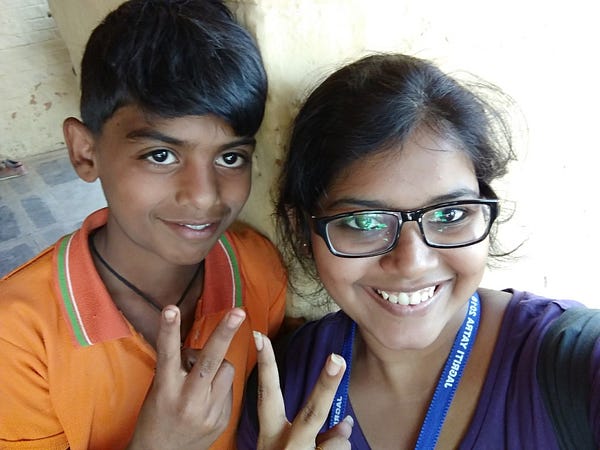
- Vittal — He is studying in 6th grade at the Kalkeri Sangeet Vidyalaya, Hubli. He started talking with “Could you please talk in English?”. He wanted to serve our nation as a Soldier when he grew up. He also wanted to become an actor and even delivered a movie dialog. Today, do we have such wild dreams? Are we building walls around and confining ourselves?
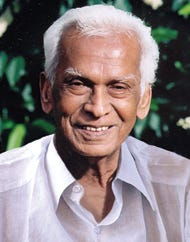
2. Dr. V, the founder of Aravind Eye Care Hospital — The beginning of world’s largest and most productive eye-care service group started with just 11 beds in a rented space. Dr. V founded it when he was 58. Entrepreneurship is a calling. It isn’t something we must do for the sake of it. Success may or may not be an outcome but it must never be the intent.
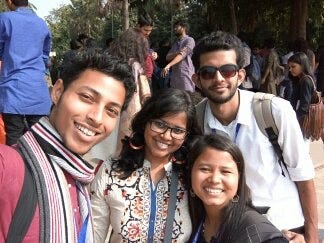
3. Saif — He comes from Bihar and is currently studying for BA in Political Science. He taught himself how to read, write and converse in english and develop software. Last year, he read 100 books! His father runs a tea shop and this requires his to help his father in the shop. In the morning and evening he helps his father. But in between, he teaches school students in the nearby village and at night, he studies and works on himself. He taught me that we can either make excuses and rant about all the problems in our life or get out there and DO things.
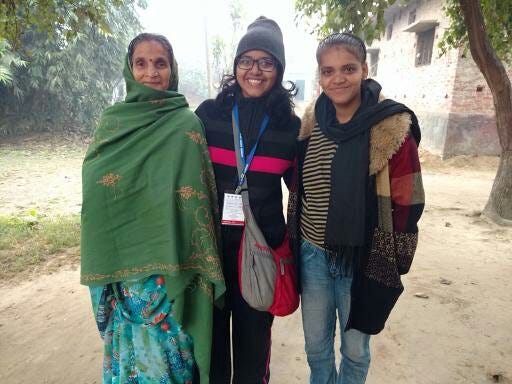
4. Sanyogita — She is from a village in UP. A meticulous student till matriculation, she was a topper and won herself a cash prize of INR 25,000 and a laptop from the UP government. But her family doesn’t let her study or work further. She says, “ Didi, I hope I get one opportunity to break free from all this trouble and study. I want to be independent”.
Are we blind towards what we have today? Do we not realise that we at a much better disposition?
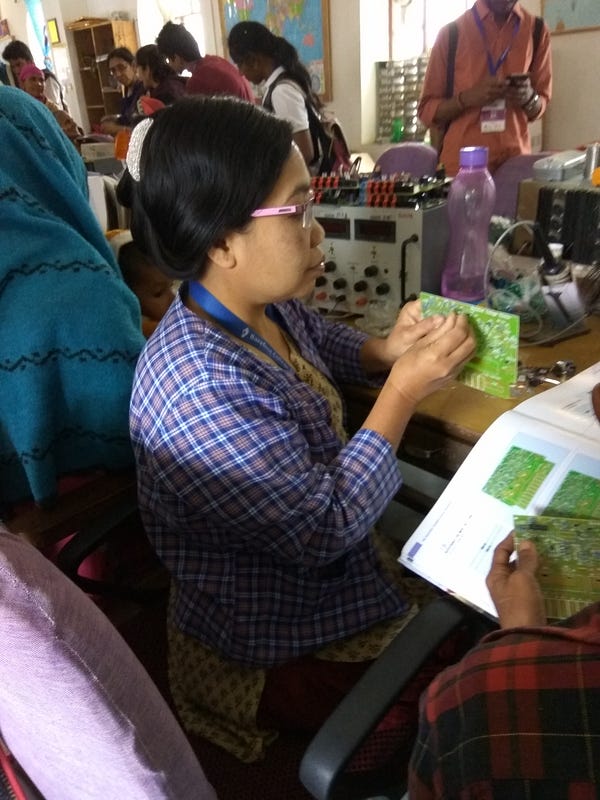
5. Bare-foot college, Tilonia —These super-women come from villages and take up a residential course to become solar engineers. She says,“I thought I would never be able to understand anything — let alone be able to do it on my own. I didn’t even know that we could use the sunlight to light up our homes at night … I was as amazed as the other villagers.” But today, she is able to install and repair solar lanterns and cookers and is able to earn for herself and her family. Anyone can learn anything they set their mind to. It’s only a matter of doing the latter.
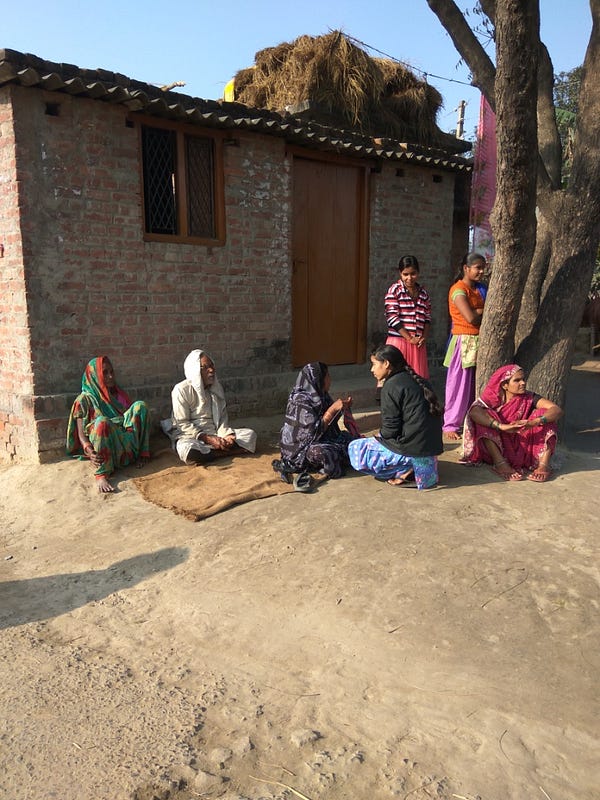
One of the key moments of the Yatra was when we stayed in a village called Barpar in the UP for a day and interacted with the residents of the village. This gave us a better sense of understanding on the problems they face. The issue with rural India is that the residents do not have access to even the basic requirements. The problems we are addressing currently are the basic necessities for survival. Development is a 0 to 1 transition, while currently we strive to push them from negative to 0.
The real key to solving their problems is not to do it all for them but to bring them together and assist them in creating a better future for themselves.
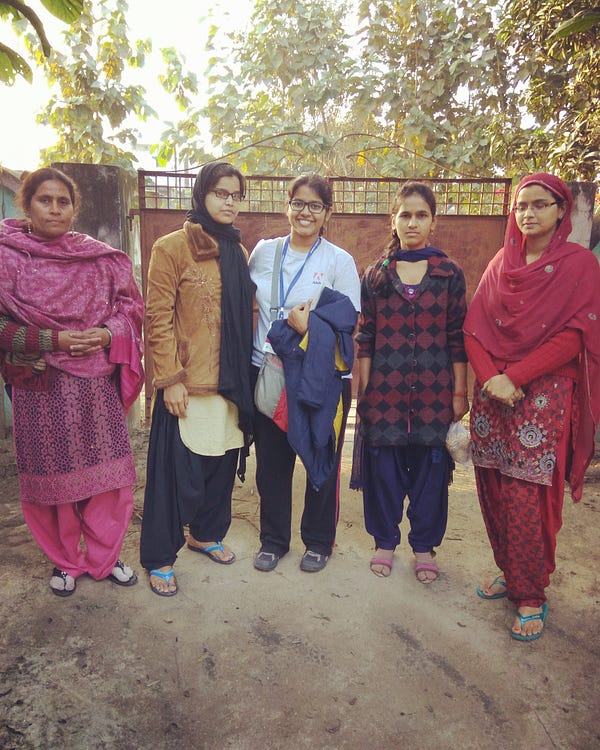
One of the key problems I could identify was their lack of awareness on menstrual hygiene. Women in these villages do not have access to clean sanitary napkins. They still use cloth or just about anything and everything that can stop the flow of blood, even mud. To solve these problems, my cohort came up with the idea of creating reusable sanitary napkins out of cloth and also educating these women on hygienic practices. Our team won the first place under the Education vertical of the Business Plan competition. We are keen on taking this venture forward.

During the Yatra, there were several moments of realisation, breakdown and awakening. My father always said that if an average Indian family had INR 100, they would happily enjoy a meal. I now realise the truth in his words. While we comfortably live in our cocoons, there are people of the same colour and creed struggling to survive. It may not seem up to just about anyone but I believe everyone is capable of becoming better humans and that in itself, might be the first step towards being the change.
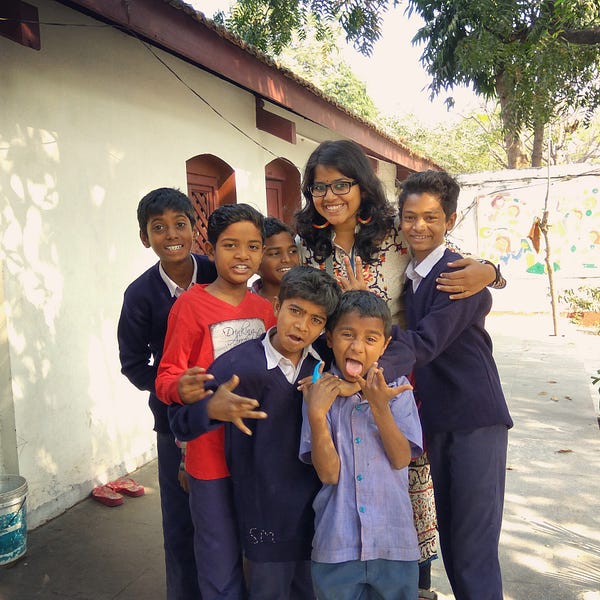
The Yatra has helped me emerge as a stronger individual. You can imagine life when you are living on a train, in 70 ft area with 7 other people for 15 days. Falling sick is the least welcome yet most probable scenario. And that’s exactly what happened to me! It was physically tiring and emotionally draining. Getting up every day, fighting the urge to go back to bed under the heavy dose of medication, pushing myself to move was a challenge in itself. At one point, I almost gave up, unable to bear the cutting cold and the hopeless health condition. That day, in a village called Brahmapur in Orissa, we went to the Gram Vikas Residential school. It was New Year’s eve. The young children brimming with energy and enthusiasm, holding my hand and saying “Didi, nacho na” (Didi, dance with us) got me out of my distress. I was smiling again, celebrating the year that had passed and welcoming 2017 with some amazing kids who would surely grow to become great men and women. I realised that I’m greater than my struggles.
Of all my realisations, a lot have been about myself. The yatra was more of a journey into myself. I realised I’m much stronger than I thought I was and that I have a very long way to go.
As Rumi rightly said,
